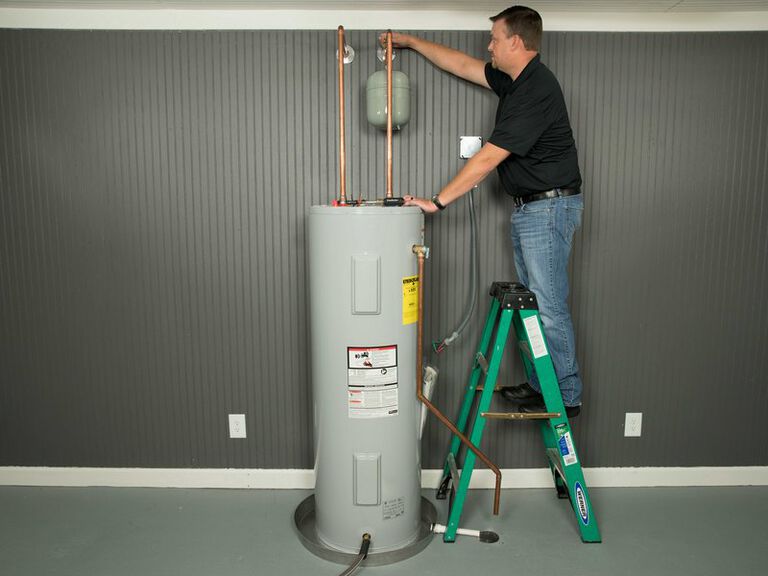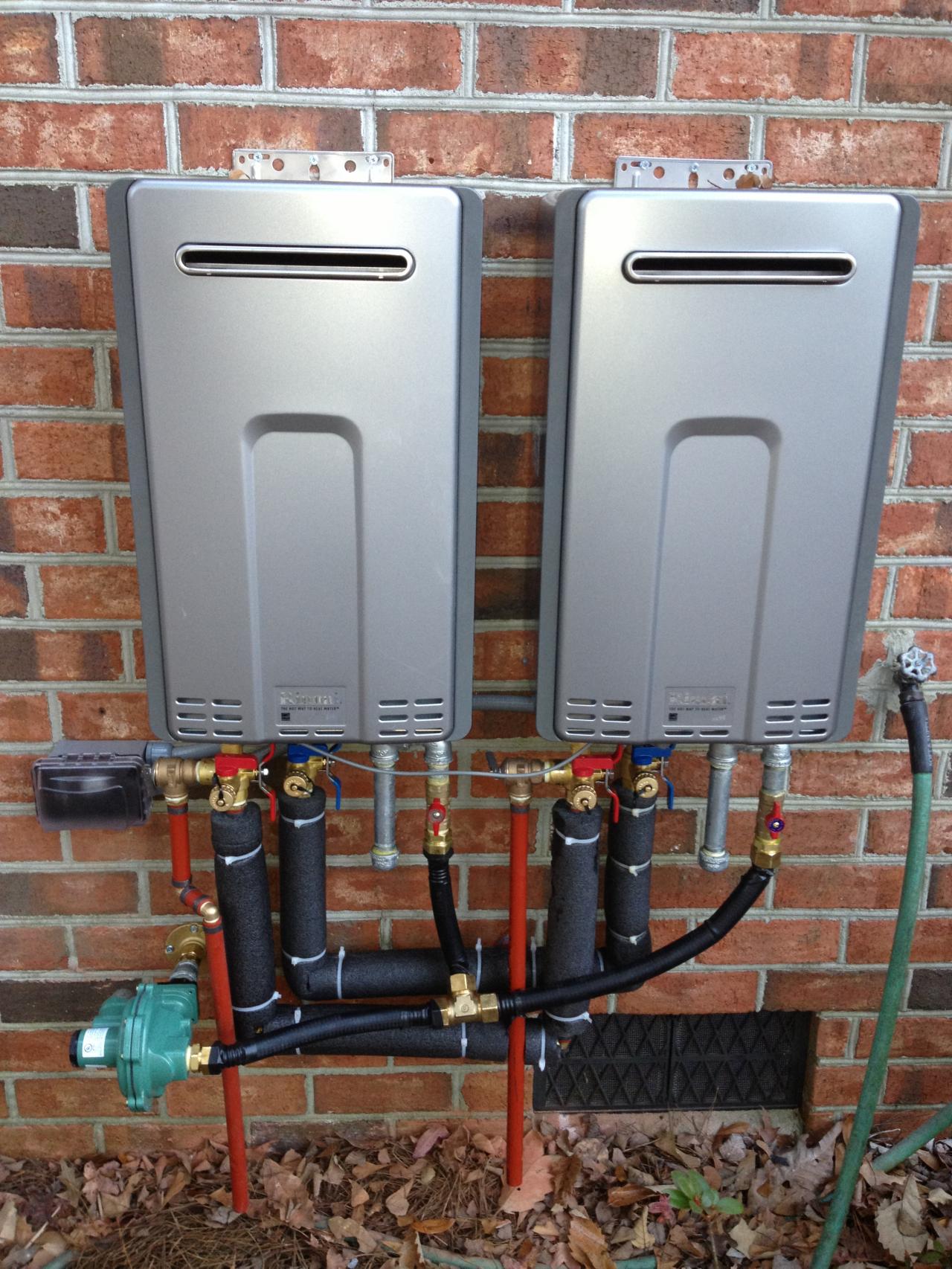Water Heater Installation for Enhanced Hot Water Efficiency and Functionality
Water Heater Installation for Enhanced Hot Water Efficiency and Functionality
Blog Article
Full Overview to Water Heating SystemInstallment and Substitute
Understanding the intricacies of water heating unit installment and substitute is important for homeowners looking for to make sure performance and integrity in their hot water supply. From selecting the appropriate type and size to executing a seamless installation procedure, several factors must be thought about to stay clear of typical challenges.
Sorts Of Water Heating Units
When taking into consideration hot water heater installation and replacement, it is crucial to understand the numerous sorts of water heating units offered in the marketplace. One of the most typical types include container hot water heater, tankless hot water heater, warmth pump hot water heater, and solar hot water heater.
Container water heaters are conventional systems that save a particular volume of warm water, making them conveniently offered when needed. They are usually cheaper in advance yet might incur greater energy expenses over time as a result of warm loss. On the other hand, tankless hot water heater offer warm water as needed, eliminating the demand for storage. They are power reliable and can conserve room, but their first costs are normally greater.
Heatpump water heating systems make use of electrical power to move warm from the air or ground to warmth water, using significant power savings however requiring more area and particular installment conditions. Last but not least, solar water heaters harness solar power to warm water, providing a green choice with potential long-term cost savings, although they often require a back-up system for cloudy days.
Recognizing these options makes certain informed choices relating to installation and replacement, accommodating certain needs and preferences.
Selecting the Right Dimension
Choosing the proper dimension for a hot water heater is critical to guarantee optimal performance and effectiveness. A device that is as well tiny will certainly have a hard time to meet family needs, resulting in irregular warm water schedule and raised energy intake. On the other hand, a large water heating unit can cause unneeded power waste and greater utility bills.
To establish the appropriate size, take into consideration the family's height hot water usage. This can be determined based on the number of passengers and their normal hot water requirements. A household of 4 may need a water heating unit with a capacity of 50 to 80 gallons, depending on the use patterns, such as simultaneous showers and laundry.
In addition, examine the recuperation price, which determines exactly how rapidly a heater can renew warm water after it has actually been utilized. For tankless models, emphasis on the circulation price, measured in gallons per min (GPM), to ensure it fulfills the home's synchronised need.

Installation Process Summary

Following, the old system has to be disconnected and removed, making sure to follow local codes and laws pertaining to disposal. As soon look at more info as the old device is out, the new water heating system can be placed in position. This step involves connecting the supply of water lines, making sure that all fittings a fantastic read are safe and leak-free.
After developing water connections, it's necessary to link the power supply, whether electric or gas, adhering to the producer's instructions thoroughly. Once all connections are made, the system must be loaded with water, and the power can be turned back on. Ultimately, it is essential to examine for leaks and make sure the hot water heater is working appropriately prior to finishing the setup procedure.
Common Setup Errors

An additional constant mistake is ignoring to follow neighborhood codes and regulations. Stopping working to stick to these criteria can not just lead to safety and security threats however may also result in expensive penalties or the demand for pricey reinstallation.
Inaccurate plumbing connections are also a widespread mistake. Falling short to safeguard links or using the wrong type of installations can result in leakages and water damages. Overlooking the relevance of an appropriate drain frying pan can result in significant water damage if leaks do happen. Last but not least, inadequate insulation of pipes can bring about warm loss, minimizing effectiveness. By avoiding these usual setup blunders, property owners can ensure their hot water heater operates securely and efficiently, making best use of efficiency and longevity.
Upkeep Tips for Long Life
Correct upkeep of a water heater is essential for its durability and optimum performance. Regular inspections and maintenance can avoid costly fixings and prolong the appliance's life expectancy. Begin by examining the temperature setup; it needs to commonly be established between 120 ° F and 140 ° F for ideal power performance and safety and security.
Every 6 months, flush the tank to remove debris buildup, which can hinder heating more performance and cause deterioration. To do this, turn off the heating system, link a hose pipe to the drain shutoff, and allow the water run till it is clear.
When they are corroded,Anode poles should be checked each year and replaced. These rods assist stop storage tank deterioration by drawing in harsh components in the water.
In addition, check the pressure alleviation valve frequently to ensure it is functioning properly. This valve is essential for protecting against too much pressure buildup within the storage tank.
Last but not least, take into consideration arranging an expert maintenance check every few years for complete examinations and servicing. By sticking to these maintenance ideas, homeowners can substantially boost the effectiveness, security, and life-span of their water heating systems, guaranteeing dependable warm water for years to come.
Verdict
In verdict, appropriate setup and maintenance of hot water heater are crucial for guaranteeing effectiveness and longevity (drain cleaning). Choosing the proper type and dimension, adhering to setup standards, and preventing usual errors significantly add to optimum performance. Routine maintenance checks and professional maintenance help receive functionality and stop expensive repair services. By recognizing these crucial aspects, home owners can attain a dependable warm water supply while lessening potential issues connected to water heater operation.
Comprehending the intricacies of water heating system installation and substitute is important for property owners looking for to make certain performance and integrity in their warm water supply.Storage tank water heating systems are conventional systems that save a particular quantity of hot water, making them easily available when required. In contrast, tankless water heaters offer warm water on demand, eliminating the requirement for storage. Choosing a water heating unit that is either too little or also large can lead to inefficiencies, resulting in poor hot water supply or too much energy consumption.
By understanding these important elements, home owners can accomplish a trusted hot water supply while minimizing possible issues related to water heater operation. plumber Denton.
Report this page